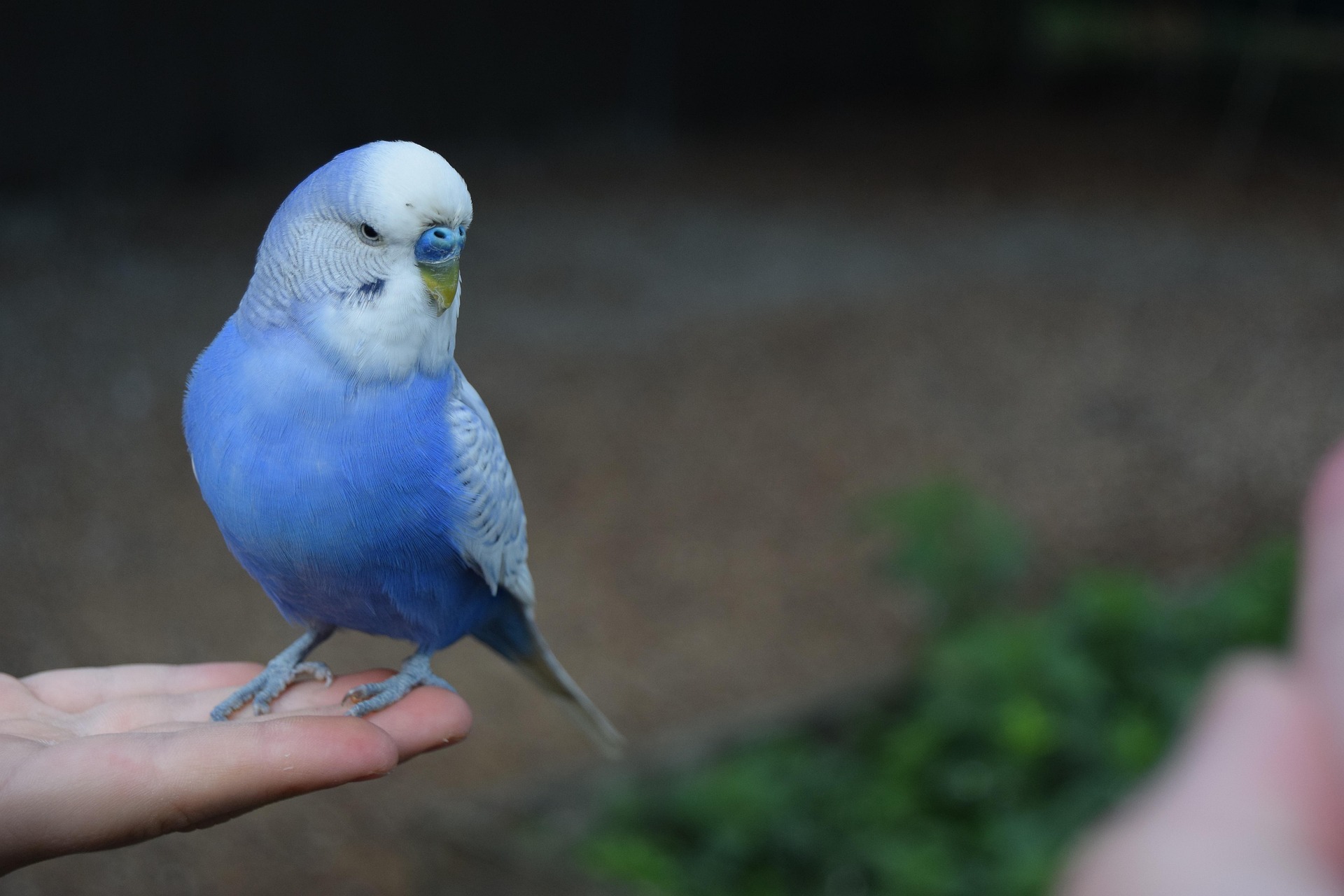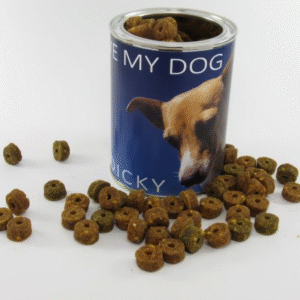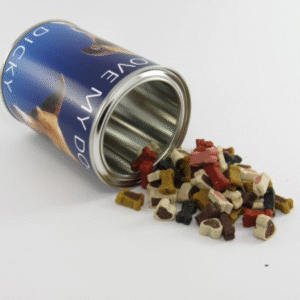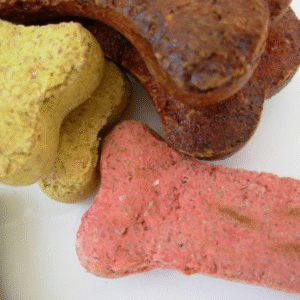Budgies, also known as Budgerigars or Parakeets, are one of the most popular pet birds in the world, and for good reason! These small, colorful parrots are not only stunning to look at, but they’re also incredibly social, playful, and easy to care for. Whether you’re a seasoned bird owner or considering adopting a budgie for the first time, here’s everything you need to know about these delightful feathered friends.
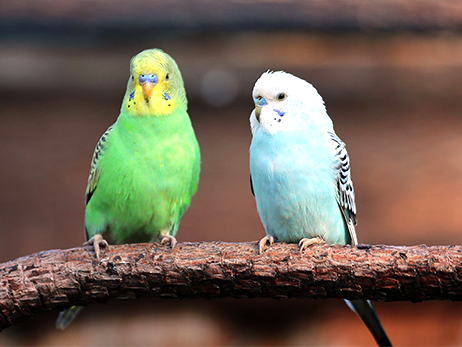
What Are Budgies?
Native to Australia, budgies are small parrots that typically measure around 7 inches in length, making them one of the smallest parrot species. They come in a variety of colors, with the most common being green and yellow, though you can also find them in blue, white, and even purple shades. Despite their petite size, budgies pack a lot of personality into their tiny bodies!
Budgie Personality and Behavior
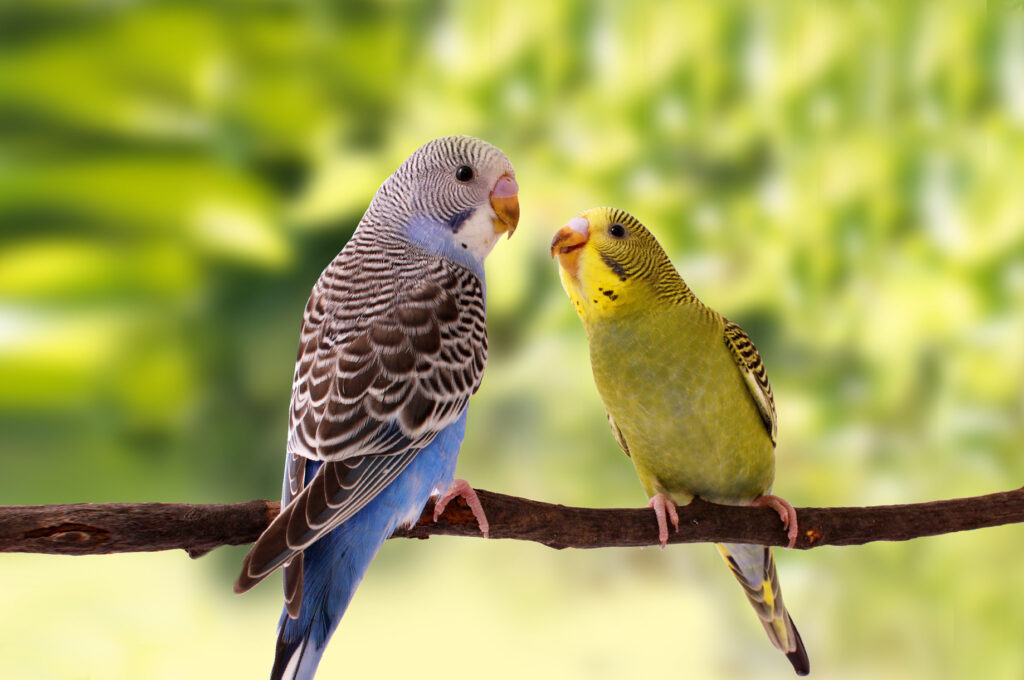
Budgies are highly intelligent and social creatures, known for their playful and affectionate nature. They thrive on interaction, whether it’s with their human companions or other birds. Budgies can form strong bonds with their owners, often mimicking speech and learning tricks. In fact, many budgies have an impressive ability to learn words and even short phrases—some can even carry on conversations!
These birds are also very active and need plenty of space to fly and play. They love to perch, explore, and engage with toys. A happy, healthy budgie will exhibit lots of chirping, singing, and playful behavior.
Diet and Care for Budgies (Parakeets)
Budgies, or budgerigars, are small, lively parrots that make wonderful pets. To ensure they live a long, healthy life, it’s essential to provide them with a balanced diet and proper care. Below is a guide to the dietary needs and overall care of your budgie to keep them happy and thriving.
Diet for Budgies: What to Feed Your Parrot
Budgies have specific dietary needs to stay healthy, and variety is key to their nutrition. A balanced diet helps prevent obesity, malnutrition, and common diseases.
1. Seeds and Pellets:
- Seeds: While seeds are often the base of a budgie’s diet, they should be offered in moderation. A mix of high-quality seeds is ideal, but seeds alone do not provide the complete nutrition your budgie needs. Avoid seed blends with too much sunflower seed or millet, as they can be high in fat.
- Pellets: Pellets are a great addition to their diet because they are nutritionally complete and help prevent selective eating. Many bird experts recommend pellets as the main food, with seeds provided as a supplement.
2. Fresh Fruits and Vegetables: Budgies need fresh, nutritious food to stay healthy. Offer a variety of fruits and vegetables for variety and enrichment:
- Vegetables: Leafy greens like spinach, kale, and dandelion greens are great. You can also give them carrots, cucumbers, broccoli, and bell peppers.
- Fruits: Budgies love fruits such as apples (without seeds), pears, berries, and bananas. Be sure to remove any pits or seeds that may be harmful.
- Avoid Toxic Foods: Some foods like avocado, chocolate, caffeine, and onions are toxic to birds, so make sure to avoid giving them these items.
3. Grains and Legumes: You can offer cooked grains like quinoa, brown rice, and oats. Additionally, small amounts of cooked beans and peas can provide protein and fiber. Just make sure they are properly cooked, as raw beans and legumes can be toxic.
4. Fresh Water: Always provide clean, fresh water in your budgie’s cage. Change the water daily to ensure it’s free of contaminants. Budgies tend to bathe in their water, so clean it regularly to avoid bacteria build-up.
5. Supplements:
- Cuttlebone or Mineral Block: These are essential for providing calcium, which is important for bone health and egg-laying females.
- Vit-Amin Supplement: If you notice your budgie is not getting enough vitamins from their food, consult with a vet about adding vitamin supplements, especially Vitamin A and D.
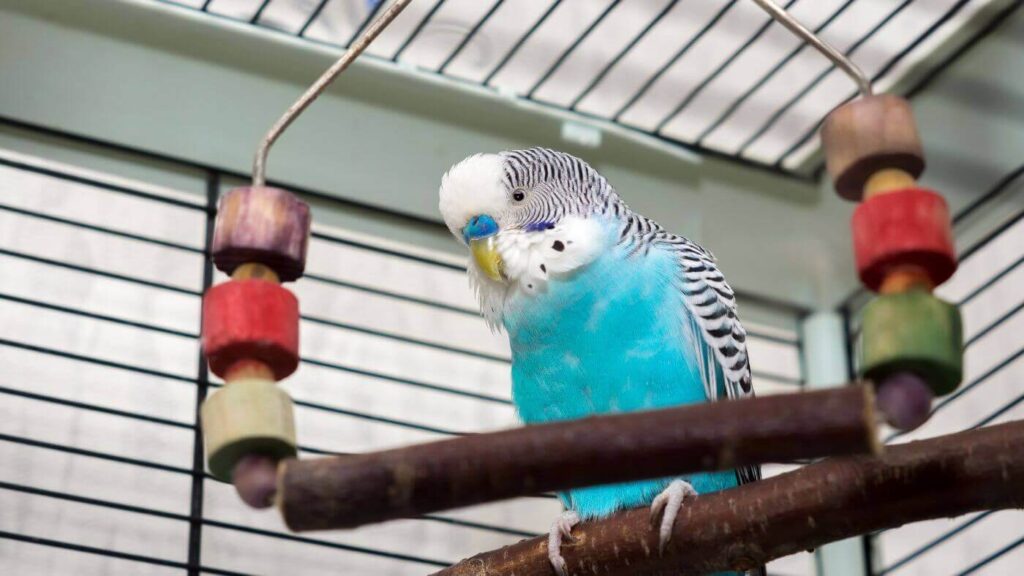
Care for Budgies: Ensuring Your Pet’s Well-Being
In addition to a proper diet, budgies require a safe and stimulating environment, regular attention, and grooming. Here’s how you can provide the best care for your feathered friend:
1. Cage Setup:
- Size: The cage should be spacious enough for your budgie to fly short distances and exercise. A cage that’s at least 18” x 18” x 18” is ideal, but larger cages are always better. Consider a rectangular cage to give them more horizontal space to fly.
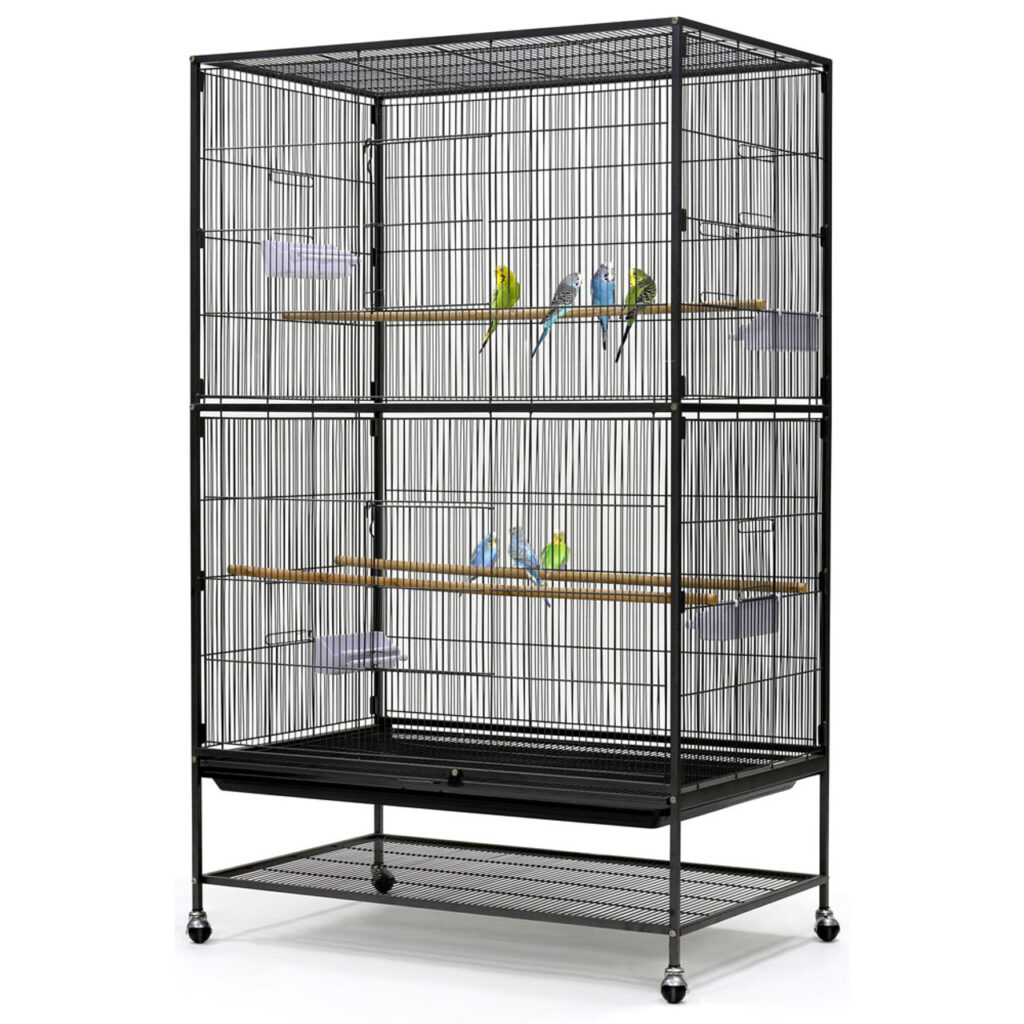
- Perches: Place multiple perches atvarying heights to encourage exercise. Natural wooden perches (e.g., from apple or willow trees) help keep their feet healthy and provide texture for climbing.
- Toys: Budgies are curious and active, so provide them with toys to stimulate their minds. Safe toys include bells, swings, mirrors, and shreddable materials. Rotate toys regularly to keep your budgie entertained and prevent boredo
2. Space to Fly: Budgies are active birds, so giving them time outside the cage is essential. Allow them to fly freely in a safe room (free from windows, mirrors, and ceiling fans) for at least 30 minutes each day. This helps them stay fit, happy, and engaged.
3. Socialization and Interaction: Budgies are very social birds and enjoy spending time with their human companions or other birds. Talk to your budgie regularly to build a bond and help them become comfortable with you. Budgies are capable of learning to mimic words, so with time, you may hear your bird chirping back at you or even repeating simple phrases.
4. Grooming and Hygiene:
- Feather Care: Budgies naturally preen and maintain their feathers, but you can assist by providing a shallow dish of water for them to bathe in or gently misting them with water to encourage preening.
- Nail Clipping: Regularly check your budgie’s nails and trim them if necessary to prevent overgrowth. If you’re unsure about how to trim them safely, consult with a vet.
- Beak and Foot Care: Keep an eye on your budgie’s beak and feet for signs of overgrowth or damage. These can be signs of underlying health issues that may require veterinary attention.
5. Sleep and Rest: Budgies need about 12 hours of sleep per night to stay healthy and energized. Place the cage in a quiet, dark room during the night or cover it with a light cloth to help them rest. Avoid disturbances during their sleep time, as budgies can be sensitive to noise.
6. Health and Veterinary Care:
- Regular Vet Checkups: Schedule regular check-ups with an avian veterinarian to ensure your budgie’s health. Birds often hide signs of illness, so routine visits can help catch problems early.
- Signs of Illness: Monitor your budgie for any changes in behavior, droppings, or appearance. If your bird seems lethargic, loses appetite, or displays any other unusual symptoms, seek veterinary care promptly.
Conclusion
Taking proper care of your budgie involves providing them with a nutritious diet, a stimulating environment, and plenty of social interaction. With the right care and attention, your budgie can live a long, happy life and become a cherished member of your family. By meeting their dietary and care needs, you’ll help them thrive and enjoy their time with you!
If you have any questions or tips on caring for your budgie, feel free to share them in the comments below!

